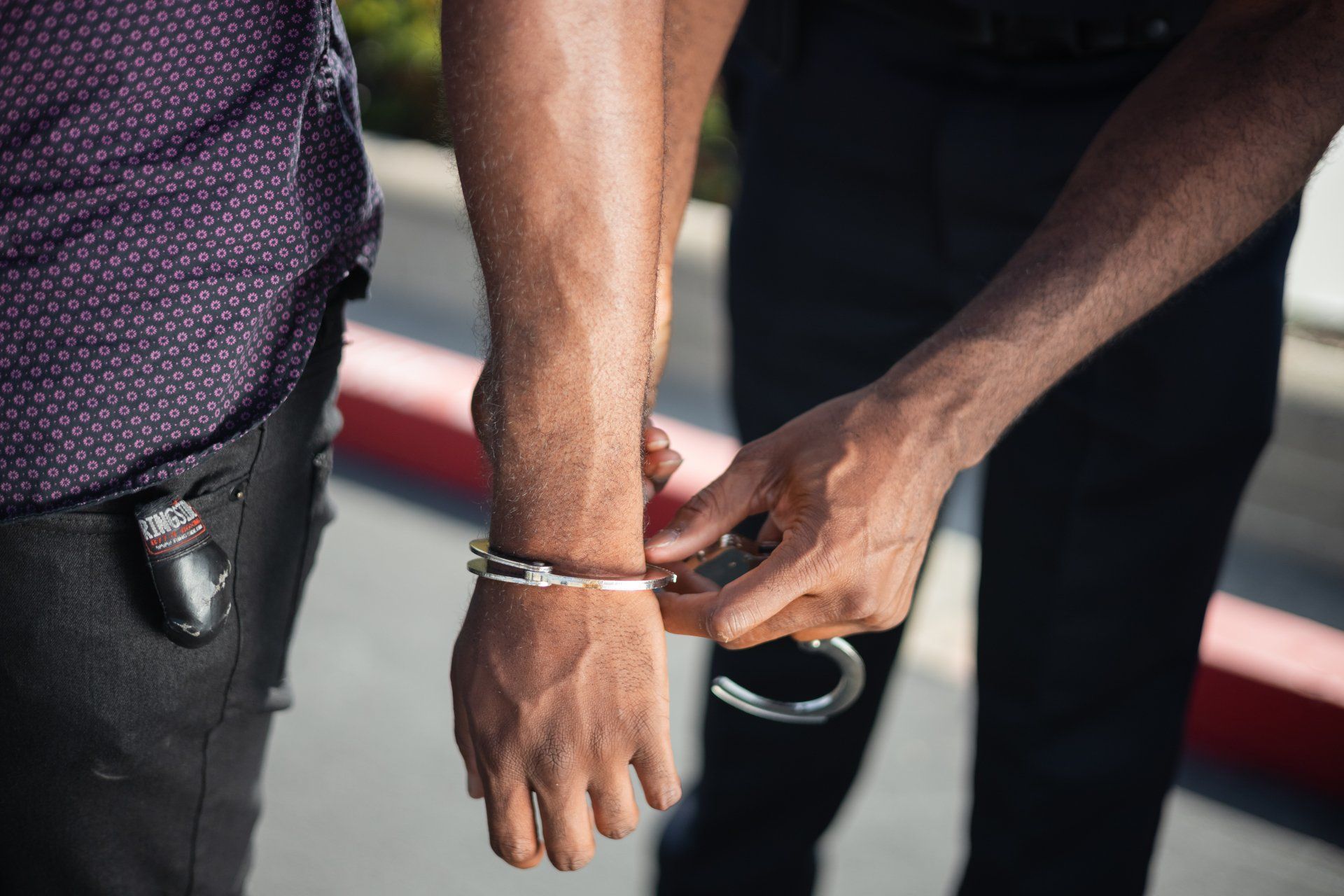How Bail Bonds Work: A Comprehensive Guide
Have you ever been faced with a situation where someone you know is arrested and needs help getting out of jail? Bail bonds can provide an essential solution in this kind of difficult scenario. But many people have questions about how bail bonds work, what the requirements are for obtaining one, and what the process looks like. This comprehensive guide will give you a better understanding of the bail bond system, including what is required and how it works. We’ll also discuss some best practices to keep in mind when dealing with bail bonds. With this knowledge, you can be better prepared for any future scenarios involving bail bonds.
Now let's dive into the basics of how bail bonds work.
What are bail bonds and what do they entail?
Bail is the temporary release of an accused person awaiting trial on the guarantee that they will return to court when required. A bail bondsman or bail agent is a person who arranges the release of a defendant from jail by posting bail.
There are also surety companies that specialize in bailing people out of jail. These companies work with bail agents to provide the necessary collateral to post bail. In most cases, a bail bond is posted by a family member or friend of the accused. However, there are some instances where a professional bail bondsman is used.
For example, if the accused is considered to be a flight risk or if the bail amount is particularly high. Bail bonding is regulated by states and there are surety companies that are licensed to conduct business in multiple states. In order to become a bail bondsman, one must complete a surety agent training program and pass a background check. Some states also require bail bondsmen to be bonded themselves.
This means that they must have an insurance policy in place in case they fail to pay the full amount of bail should the accused fail to appear in court. Bail bondsmen typically work closely with law enforcement, as well as with attorneys and private investigators. In some cases, they may also be called upon to testify in court about their dealings with the accused.
How is Bail Amounts Determined?
Bail is an amount of money, set by a judge, which must be posted in order to secure a person's release from jail. The purpose of bail is twofold: to ensure that the defendant appears for his or her court dates, and to protect the community from dangerous defendants.
Bail amounts are typically based on the severity of the crime, the defendant's criminal history, and the risk of flight. In some cases, a bail bond may be posted in lieu of cash. This is an arrangement between the defendant and a bail bondsman, in which the defendant pays a non-refundable fee (usually 10% of the bail amount) in exchange for the bondsman's guarantee to post bail.
If the defendant fails to appear in court, the bondsman is responsible for paying the full bail amount. Bail bond fees are non-refundable, even if the case is dismissed or the defendant is found not guilty. As a result, bail bond companies perform their own investigation into a defendant's background before agreeing to post bail.
Who Can Post Bail?
In most cases, a family member or friend of the accused will post bail. This can be done by either paying the full amount of bail in cash or by signing a bail bond agreement with a professional bondsman. Professional bail bondsmen must meet certain requirements to operate legally and are typically regulated by state laws.
When an accused person is released on bail, they will be required to adhere to certain conditions of release. These may include appearing in court for all scheduled hearings and avoiding any new arrests or charges.
Failure to comply with the terms of release can result in a revocation or increase of bail. If the defendant fails to appear for court, the entire amount of bail must be paid in full, regardless of whether the bond was posted with cash or through a bail bondsman.
How to Post Bail – Different Types of Bonds & Payments
Depending on the severity of the offense and the jurisdiction, bail may be paid in cash, by check, or by money order made out to the court. Some courts accept credit card payments for bail, but most do not. Bail may also be posted in the form of a bond. A bond is a written promise to pay a set amount of money if the defendant fails to appear in court. There are different types of bonds that can be posted, including:
· Cash Bond: The full amount of bail must be paid in cash. The cash is held by the court until the case is resolved. If the defendant appears for all court appearances, the cash is returned to them. If the defendant does not appear, the court keeps the money and may issue a warrant for their arrest.
· Surety Bond: A surety bond is when someone else (a friend or family member) agrees to pay the bail if the defendant does not show up for their court appearance. The court will hold onto a portion of the bail money as collateral. If the defendant appears for all court appearances, that money is returned. If they do not appear, they forfeit that money and may also be subject to arrest.
· Property Bond: A property bond is when someone uses their property as collateral to post bail. If the defendant fails to appear in court, they forfeit their property. This type of bond is typically only used for large amounts of bail or in cases where someone does not have access to cash or surety bonds.
Bail is a way to ensure that a defendant appears for their court hearing. Depending on the case and jurisdiction, different types of bail may be available. It is important to know what options are available so that you can make an informed decision about posting bail for yourself or a loved one. With this knowledge, you can ensure that you are prepared financially and emotionally for whatever outcome might result from posting bail.
What happens if the Defendant Doesn’t Show Up for Court?
If the defendant fails to appear in court as required, they forfeit their bail and may face additional criminal charges. The court could also order a bench warrant for the defendant’s arrest. If this happens, the police will have permission to take them into custody whenever they are found.
In some cases, an amount of money equal to the bail may be confiscated from the defendant’s bank accounts or seized from other assets. This money will then be used to cover any outstanding fines or fees related to the defendant's case.
The consequences for failing to appear in court depend on the jurisdiction, but it is important that defendants take these obligations seriously and make every effort to attend their court hearings. Otherwise, they risk additional fines, jail time, and possibly having their bail revoked.
The consequences of not appearing for a court hearing can be far-reaching and long-lasting. Knowing the terms of one’s bail agreement is critical to ensuring that defendants appear in court and avoid any additional legal troubles.
What Happens if the Defendant Violates their Bail Agreement?
If a defendant violates the terms of their bail agreement, they may be found in contempt of court and face additional charges. Depending on the severity of the violation, this could result in extended jail time or additional fines. In some cases, the bail amount may be completely forfeited if the defendant fails to comply with their bail conditions.
It is important for defendants to understand the terms of their bail agreement and make every effort to abide by them. The court takes these obligations seriously, and any violations may be used against the defendant in their trial. If a defendant has questions about their bail agreement, they should contact their lawyer or legal representative as soon as possible.
This can help ensure that the defendant remains compliant with their bail conditions and avoids any additional legal consequences.
The Consequences of Not Posting Bail
When a person is arrested and charged with a crime, they may be held in jail until their trial. If the court sets a bail amount, the defendant can choose to post bail and be released until their trial date. However, if the defendant does not post bail, they will remain in custody until their trial. There are several consequences of not posting bail, which can include:
* The defendant will miss work, school, and other important appointments.
* The defendant will be unable to care for their family or pets.
* The defendant will be unable to attend important events, such as weddings or funerals.
* The defendant may suffer from anxiety or depression due to their confinement.
* The defendant may have difficulty accessing medical care.
In addition, defendants who do not post bail may be at risk of being convicted of a crime, even if they are innocent. This is because defendants who are incarcerated are more likely to plead guilty in order to receive a shorter sentence. As a result, defendants who cannot post bail may want to consider hiring a bail bond company to help them secure their release from custody.
The Role of Bail Bond Agencies
Bail bond agencies play an important role in the criminal justice system. They provide a way for defendants to obtain release from jail while awaiting trial. By posting bail, the defendant is promising to appear for all court proceedings. If the defendant fails to appear, the bail bond agency may be required to pay the full amount of the bail.
Bail bond agencies typically charge a non-refundable fee, which is typically 10% of the bail amount. The fee must be paid upfront and is generally not refundable even if the defendant is found not guilty. Bail bond agencies also typically require collateral, such as property or a cosigner, in case the defendant fails to appear in court.
In addition to posting bail, bail bond agencies may also provide other services, such as monitoring the defendant's whereabouts and providing transportation to and from court appearances.
In conclusion
The bail system is an integral part of the criminal justice system. By providing defendants with the opportunity to be released from custody while awaiting trial, it allows them to continue their lives and take care of their responsibilities. Knowing the terms of one’s bail agreement is critical to ensuring that defendants appear in court and avoid any additional legal troubles.
Who Should You Contact
When it comes to bailing someone out of jail, it's important to understand the bail system and the role of bail bond agencies. By posting bail, defendants can be released from custody while awaiting trial. Bail bond agencies typically charge a non-refundable fee and require collateral in case the defendant fails to appear in court. In addition to providing bail services, bail bond agencies may also provide other services, such as monitoring the defendant's whereabouts and providing transportation to and from court appearances.
G-L Mackins Bonding Company is a family-owned and operated business located in Charlotte, NC that has been bonding people out of jail for 62 years. We are happy to serve the following North Carolina counties: Cabarrus, Gaston, Iredell, Mecklenburg, Rowan, and Union. If you have any questions or need bail bond services, please don't hesitate to call us at
(704) 334-9600.










Address: Charlotte, NC | Phone: (704) 334-9600 | Secondary: (704) 334-4778
Area Served: Gastonia
Copyright © 2024 G-L Mackins Bonding Company, All Rights Reserved.
